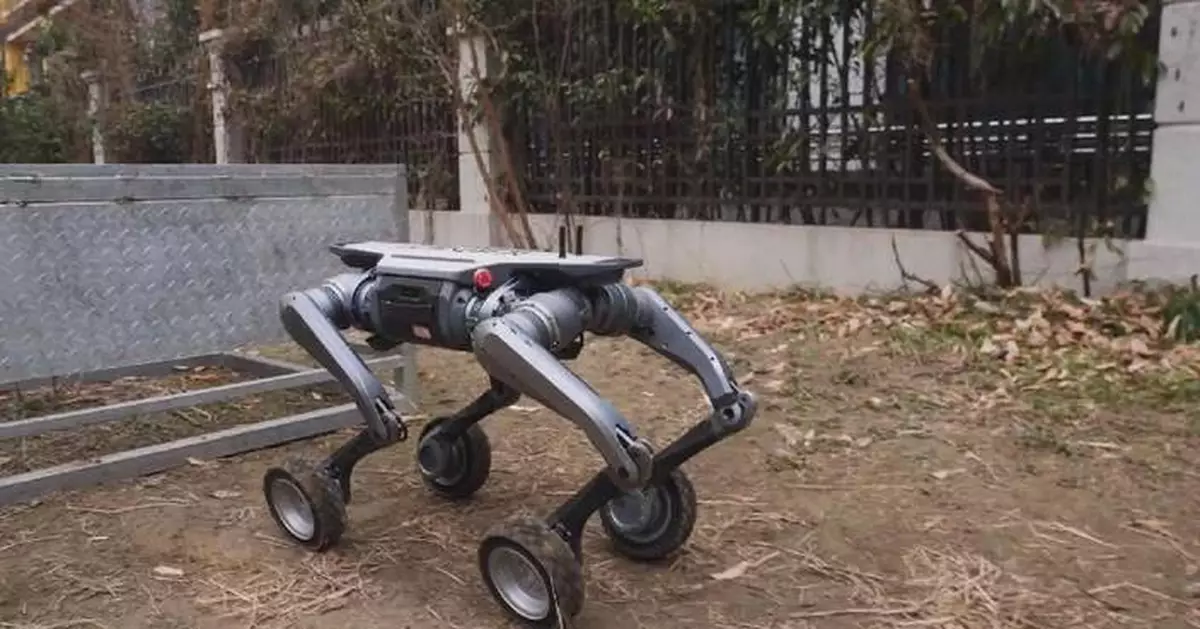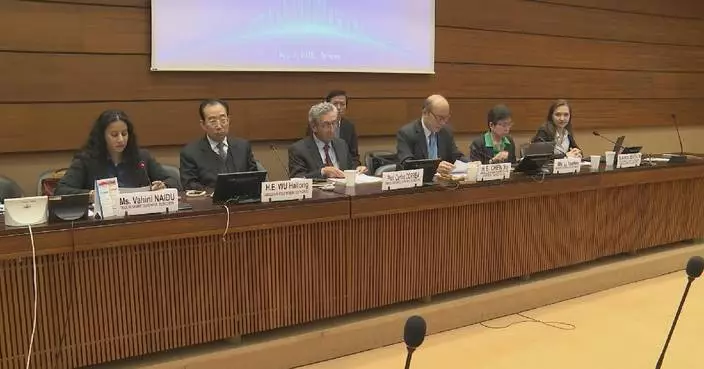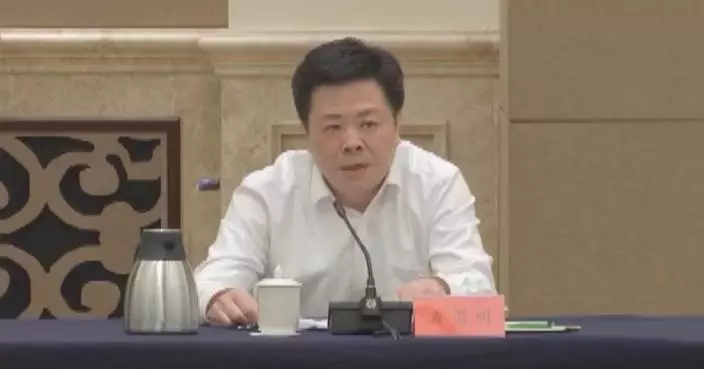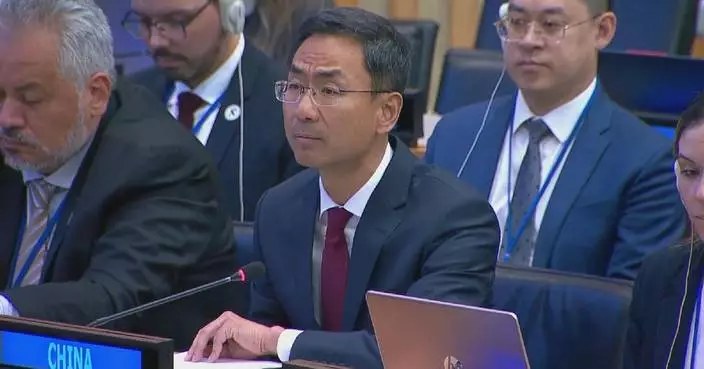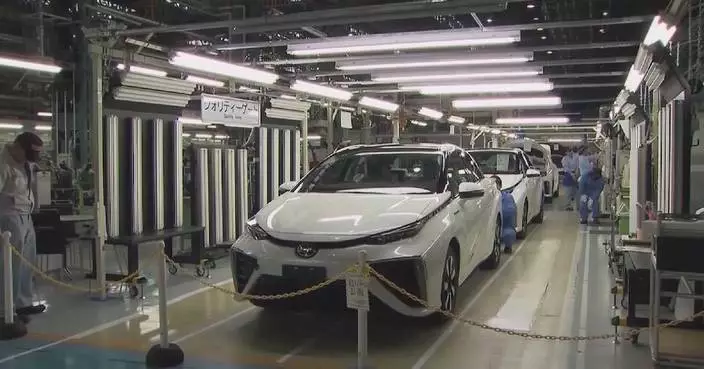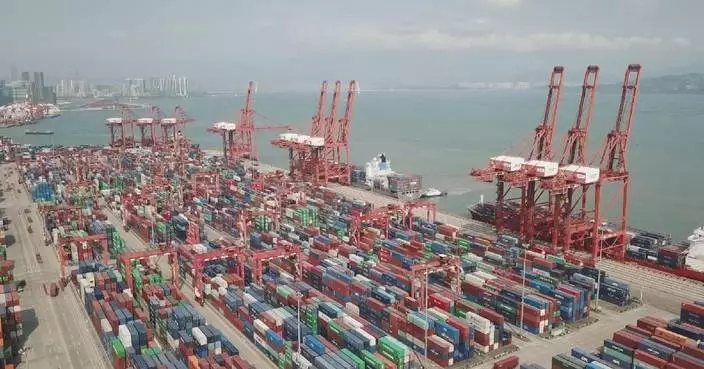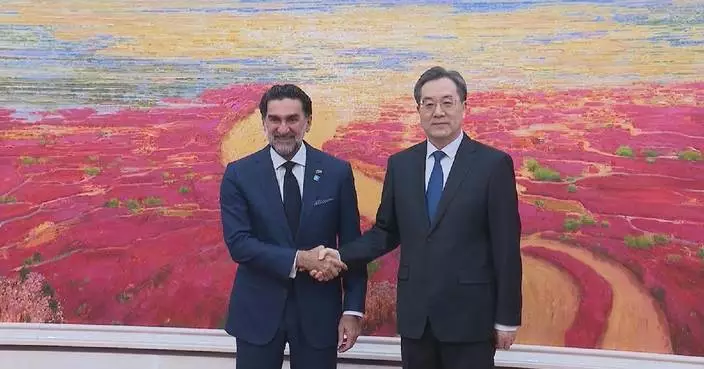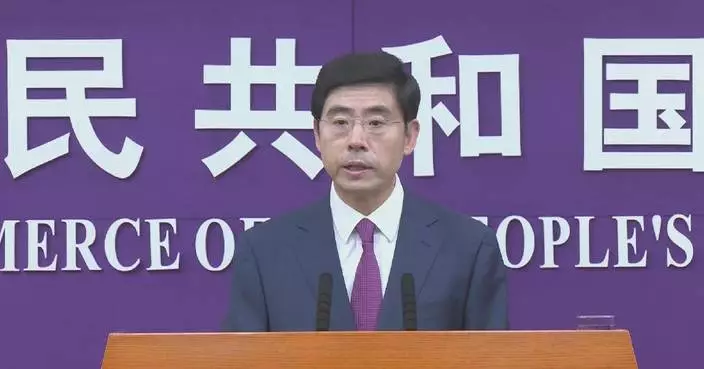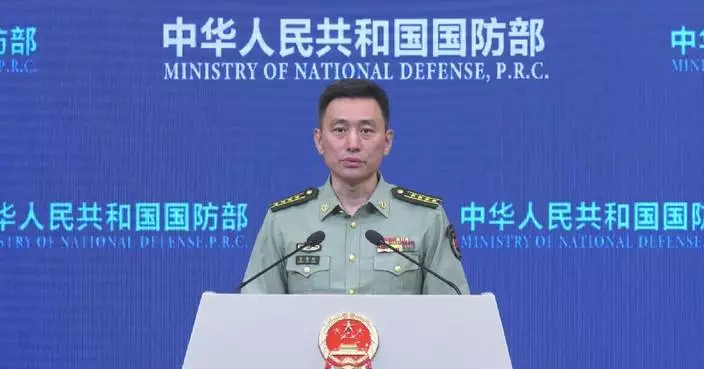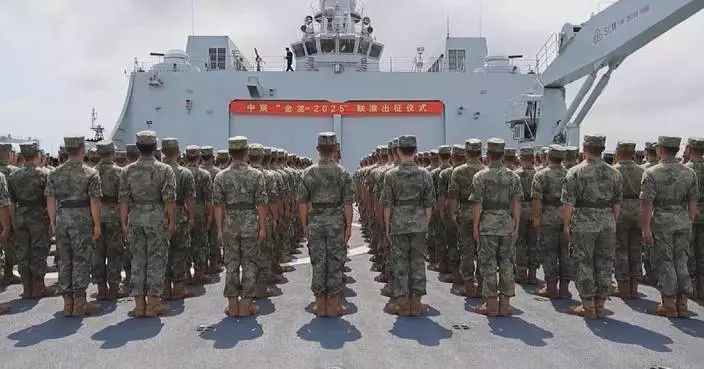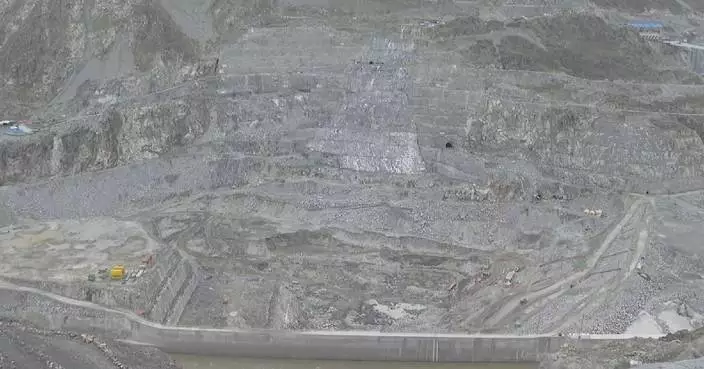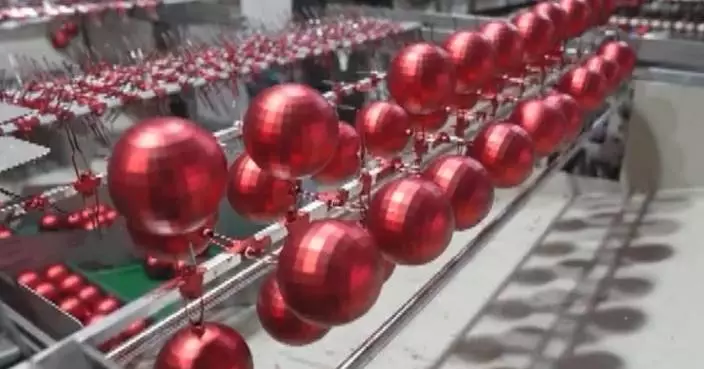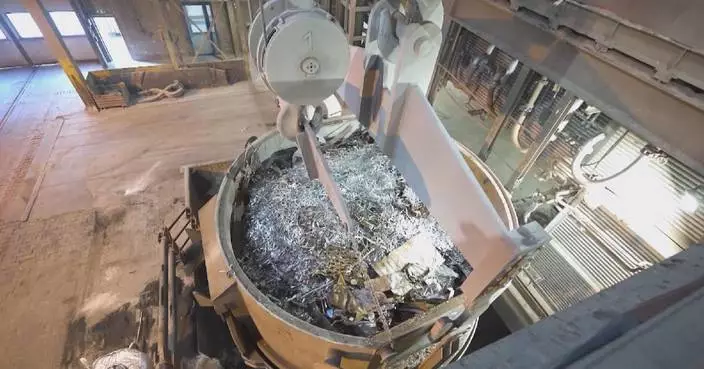Hangzhou Yunshenchu Technology Co., Ltd., or DEEP Robotics, has attracted global attention with their innovative robotic dogs, capable of navigating challenging environments.
At one point, customers and representatives from government-sponsored research groups lined up in the company's showroom to see the remarkable robotic dogs in action. These machines, which can run, jump, and scale obstacles, have become a symbol of the company's rapid advancements in the robotics field.
In 2023, the robot dog's movements were slow and rigid. Today, it is capable of effortlessly climbing steep slopes, navigating high platforms, and handling multiple sets of stairs with ease.
"We're conducting a round of automated tests here. You can see that the robotic dog runs for a few minutes, then [automatically] recharges itself. Once fully charged, it continues running, 24 hours a day, without interruption, to undergo the tests," said Zhou Yanxin, Research and Development director at DEEP Robotics.
This continuous testing allows the robotic dog to collect vital environmental data, walking patterns and movement status, which are then transmitted to the system. Using the latest AI algorithms, the robot is no longer manually programmed to navigate specific environments. Instead, it can autonomously adapt to new situations, learning how to move on its own.
"Now we are conducting research and development on the basis of more advanced AI algorithms, which make the robot more intelligent, and allow it to learn on its own. It's no longer limited by pre-programmed movements or fixed scenarios. Its ability to handle previously inaccessible or difficult-to-reach areas has greatly improved. This has been a huge advantage for our project deliveries and order volumes," Zhou said.
This shift from traditional to AI-based algorithms has marked a significant transformation for DEEP Robotics. The company, standing out from over 400,000 robotics firms across China, has now successfully put its robotic dogs to practical application on over 400 projects, including power station inspections and emergency rescues.
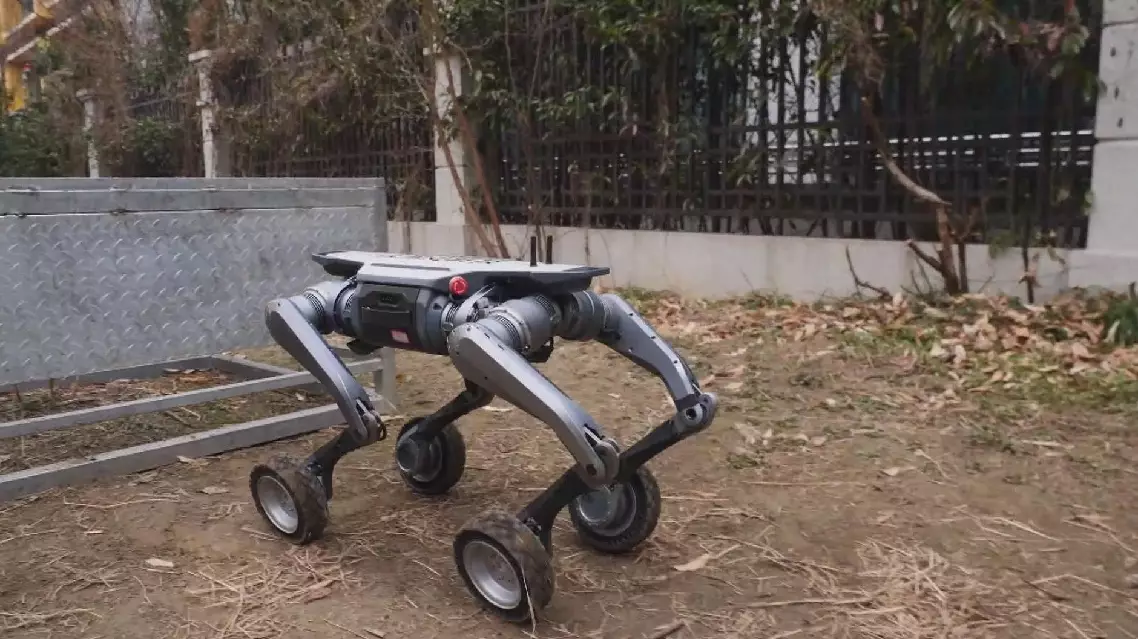
DEEP Robotics advances AI-powered robot dogs
U.S. President Donald Trump's announcement of a 100 percent tariff on overseas-produced films has ignited fierce criticism from Hollywood and academic circles, amid growing concerns over the struggling domestic film industry.
Nicholas J. Cull, a professor at the University of Southern California's Annenberg School for Communication and Journalism, warned that the film tariff is fundamentally an act of political manipulation. He cautioned that it would heighten uncertainty in the industry, hinder international cultural exchange, sever global understanding, and undermine efforts toward international cooperation and dialogue.
"We live in a world where the problems are too big for any one country to solve, and the only way these problems are going to be solved is if people are able to work together. Now working together requires trust. Trust requires knowledge. One of the ways in which countries get to know each other, get to appreciate each other, is through exposure to their popular culture. Now it should be a time for learning more about each other, building trust between countries, and learning how to work together. And seeing each other's movies, I think, is a really important way of building knowledge and building trust. And so to me, the idea of limiting the distribution of films or penalizing production of foreign films is swimming in exactly the wrong direction at this particular moment in history," said Cull.
Cull also challenged Trump's justification that foreign films pose a threat to national security, calling it unconvincing and counterproductive to America's global image.
"He is making this important connection in that statement between what people see of America, how people feel about America, and how secure the United States is, but I don't think making crazy proposals and threatening our neighbors is a great way of helping America's reputation. I think that there must be better ways of going about this. So in the long term, this kind of behavior, I think increases mistrust about the United States," he said.
Cull further warned that the policy could trigger retaliatory measures from other countries, escalating into a cultural trade war that would limit the global flow of ideas and creativity.
"I think that in the more immediate future we can see that there will be a danger of reciprocal tariffs. So other countries will say, 'well, if you're going to impose a tariff on our production, we're going to impose a tariff on your production.' And that would be unhelpful. I think one of the things I would worry about is the world seeing less of one another's creativity, less of one another's perspectives. Right now, we need to know more about what each other are thinking, I feel," he explained.
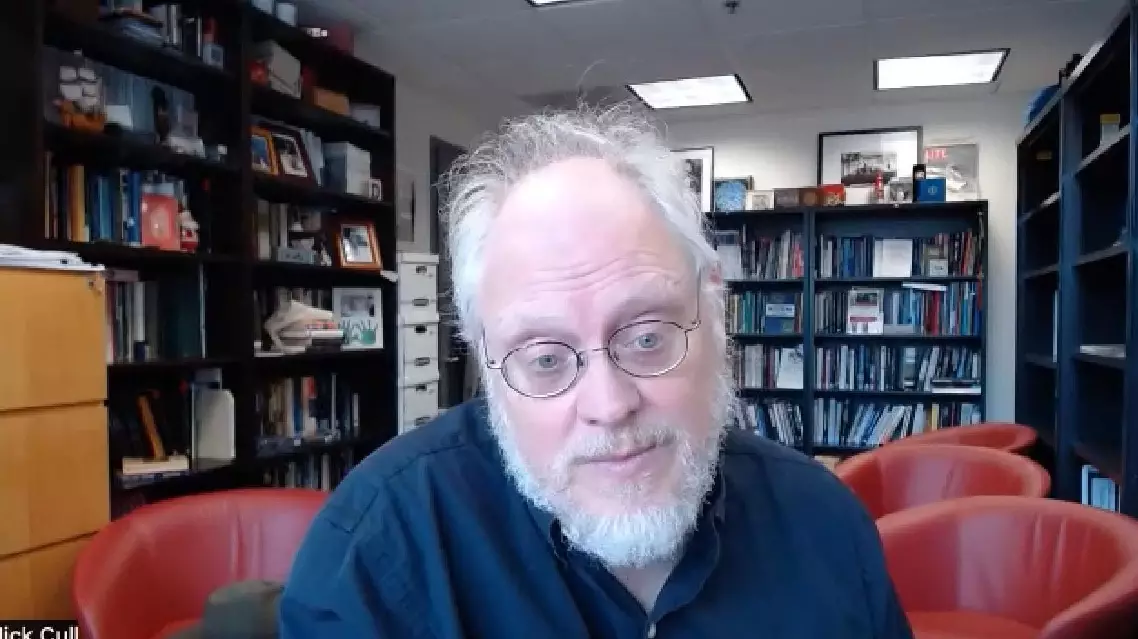
Trump's film tariff fuels global cultural divide: scholar



